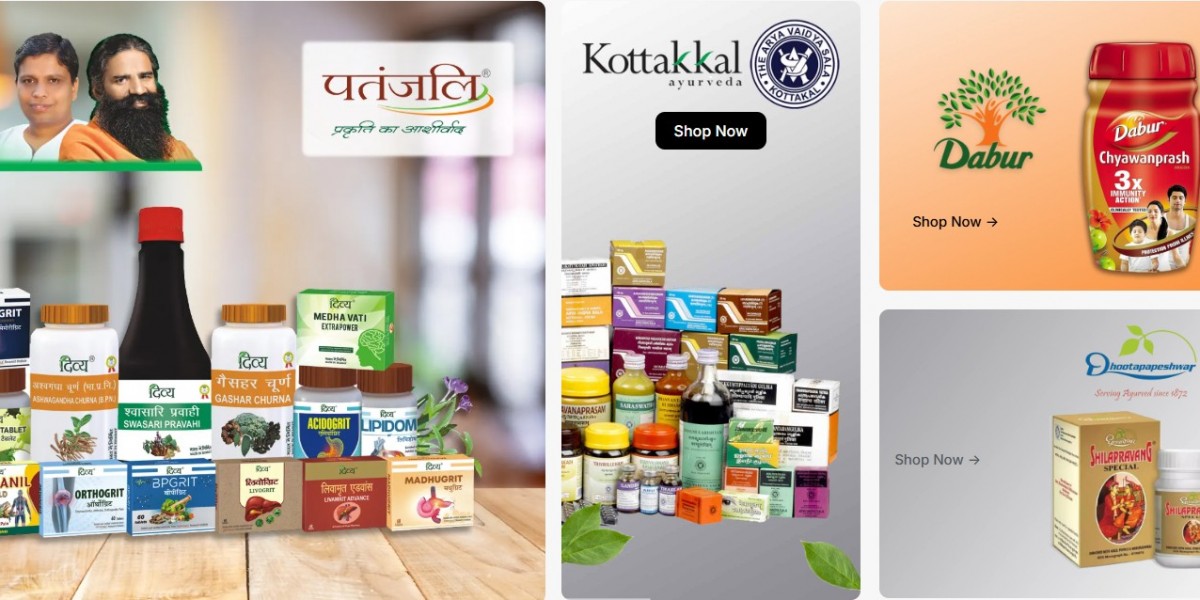Joint pain, stiffness, and inflammation are common concerns that affect mobility and quality of life. While modern medicine offers medications for symptomatic relief, Ayurveda provides a holistic approach by addressing the root causes, restoring balance to the body, and promoting long-term joint health.
Understanding Joint Pain in Ayurveda
Ayurveda explains joint pain as a result of Vata dosha imbalance. Vata governs movement in the body, including joint mobility. When aggravated, it can lead to:
Stiffness and restricted movement
Aching joints
Swelling or dryness of joint tissues
Chronic discomfort in knees, elbows, shoulders, or fingers
Other contributing factors include Kapha imbalance, which may lead to fluid accumulation and stiffness, and Pitta imbalance, which can trigger inflammation or burning sensations in the joints.
Ayurvedic treatment aims to pacify Vata, strengthen muscles and bones, lubricate joints, and improve circulation.
Key Ayurvedic Herbs for Joint Health
1. Ashwagandha (Withania somnifera)
Known as a rasayana for rejuvenation, Ashwagandha supports muscle strength and joint flexibility while reducing discomfort associated with Vata imbalance.
2. Guggulu (Commiphora mukul)
A classical herb used for joint lubrication, detoxification, and inflammation reduction. Guggulu formulations are often part of Ayurvedic treatments for arthritis and stiffness.
3. Shallaki (Boswellia serrata)
Supports joint mobility and reduces inflammation naturally. It helps maintain the health of cartilage and connective tissues.
4. Turmeric (Curcuma longa)
Contains curcumin, which provides antioxidant and anti-inflammatory support, promoting healthy joint function.
5. Giloy (Tinospora cordifolia)
Strengthens immunity, supports detoxification, and helps reduce inflammatory processes in the joints.
6. Nirgundi (Vitex negundo)
Traditionally used for pain relief and circulation improvement in joints and muscles.
Ayurvedic Oils and Ghritas for Joint Pain
1. Mahanarayan Oil
A herbal oil used for external massage to soothe joint stiffness and pain.
2. Mahavat Vidhwansan Ghrita
Medicated ghee formulations like this nourish tissues, lubricate joints, and support overall joint strength.
3. Dhanwantharam Thailam
A classical oil applied externally to improve circulation, reduce stiffness, and provide relief from pain.
Massage with these oils (Abhyanga) is combined with mild heat therapy to enhance effectiveness.
Lifestyle and Dietary Support
Ayurveda emphasizes lifestyle and diet in managing joint pain:
Warm, cooked meals with digestive spices like ginger, black pepper, and cumin.
Avoiding excessive cold, dry, or raw foods that aggravate Vata.
Regular gentle exercise like yoga, swimming, or walking to maintain joint mobility.
Weight management to reduce stress on joints.
Adequate rest and stress management to prevent aggravation of doshas.
Ayurvedic Therapies for Joint Support
Panchakarma Detox – Treatments like Basti (medicated enema) and Swedana (herbal steam therapy) help remove toxins and reduce Vata-related stiffness.
Kizhi (Herbal Poultices) – Warm herbal packs applied to joints improve circulation and reduce discomfort.
External Herbal Pastes – Made with turmeric, ginger, and other herbs to reduce inflammation and nourish joints.
Benefits of Ayurvedic Approach
Targets root cause, not just symptoms
Supports cartilage and joint tissue health
Balances doshas naturally
Reduces inflammation and stiffness
Improves mobility and quality of life
Minimal side effects compared to long-term use of chemical medications
Who Can Benefit
Ayurvedic support for joint pain is suitable for:
Individuals with age-related joint discomfort
People with osteoarthritis or mild arthritis
Those experiencing Vata-induced stiffness
Individuals seeking natural, holistic support for long-term joint health
Things to Keep in Mind
Severe joint pain or sudden swelling should be assessed by a healthcare professional.
Ayurvedic herbs and oils are most effective when used under guidance.
Consistency in lifestyle, diet, and therapy is key for sustainable results.
Avoid self-medicating with herbal powders or oils without proper supervision.
Conclusion
Ayurveda joint pain ayurvedic provides a holistic and time-tested approach to joint health, combining herbal remedies, medicated oils, ghritas, lifestyle modifications, and detoxification therapies. By addressing Vata imbalance, reducing inflammation, and nourishing tissues, this natural approach helps restore mobility, reduce discomfort, and promote long-term joint wellness.
Integrating Ayurvedic principles with a balanced diet, gentle exercise, and stress management can serve as a natural ally in maintaining healthy joints, mobility, and quality of life, reflecting the timeless wisdom of Ayurveda.








